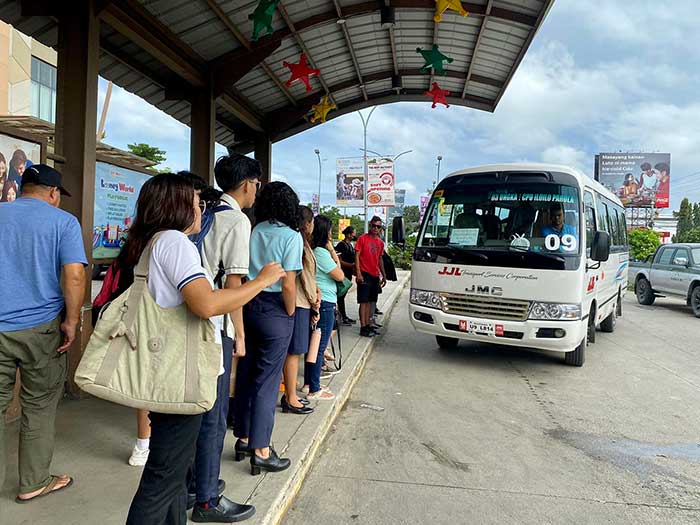
By Rjay Zuriaga Castor
The Western Visayas Alliance of Transport Cooperatives and Corporations, Inc. (WVATCCI) claimed that reports of corruption and overloading among its member cooperatives are merely “isolated” cases.
WVATCCI chairman Rizal Alido assured the public that the alliance enforces strict management across its 14 member cooperatives to promptly address any discrepancies.
“The discrepancies, the corruption, the issues, and concerns are minimal, and we can correct them immediately,” he told Daily Guardian.
Halley Alcarde, WVATCCI secretary and general manager of the Western Visayas Transport Cooperative, echoed Alido’s remarks.
“If there are problems, they are isolated cases. This is not common in our cooperative. We can even point to transport cooperatives with a healthy employee-employer relationship,” he emphasized.
Alcarde acknowledged issues related to the non-release of salaries and subsidies for some members.
“When it comes to salary issues, we cannot deny that some of our colleagues are struggling with the salaries of their passenger assistant officers (PAOs) and drivers. We need to trace the problem back to its roots,” he said.
Alcarde pointed out that other cooperatives and corporations are also facing income difficulties due to the increasing number of modernized units on the roads, which must compete with traditional jeepneys that remain in operation.
“The presence of traditional jeepneys on the streets directly affects the income of modernized units,” he said.
The Cooperative Development Authority Western Visayas advised that drivers and PAOs experiencing salary or benefit issues should file complaints with the Department of Labor and Employment (DOLE).
“That is beyond our competence because it falls under the jurisdiction of the Department of the Interior and Local Government (DILG). If their concerns involve salaries and subsidies, they should go directly to the DILG. In this case, the employer is the transport cooperative,” explained CDA-6 director Antonio Escobar.
STRICT ENFORCEMENT ON OVERLOADING
Addressing the long-standing issue of overloading, Alido stressed that WVATCCI “strictly trains and advises our PAOs and drivers to follow the correct procedures and behave professionally.”
However, he admitted that overloading is sometimes unavoidable, especially during rush hours or in cases of heavy rain and extreme weather conditions.
Perfecto Yap, a member of WVATCCI’s Board of Trustees, affirmed the alliance’s strong stance against overloading in public transportation, citing both financial and operational concerns.
“Overloading brings minimal financial gain but places undue strain on vehicle maintenance, which is already costly,” he said.
“We don’t want overloading incidents because, for every extra passenger, the company gains only a minimal amount, yet the maintenance costs remain high.”
Yap noted that the alliance condemns overloading and imposes penalties for such violations.
PAOs found guilty of allowing overloading are subjected to disciplinary action, including fines and hearings to ensure due process.
Yap also reminded the public to consider the perspective of PAOs, who are often affected by the consequences of overloading.
“I hope those who comment on this issue will also understand the side of the alliance, especially the PAOs who are impacted by overloading. There are instances where passengers insist on boarding, even when the bus is full,” he stressed.
He further remarked that this situation indicates commuters’ growing reliance on the services provided by the modernization program.
Alido expressed confidence that many of the issues currently affecting transport cooperatives would be resolved once the full number of awarded units (NAUs) under the city’s enhanced local public transport route plan (LPTRP) becomes operational.
WVATCCI has 1,782 NAUs for the 25 rationalized and developmental routes in the city’s LPTRP.
It currently operates 520 modernized units and 420 consolidated traditional units on city streets, with an additional 161 modernized units expected to arrive by the end of the year.





















